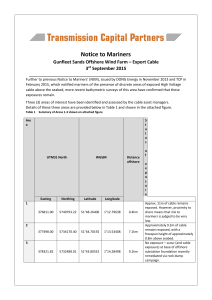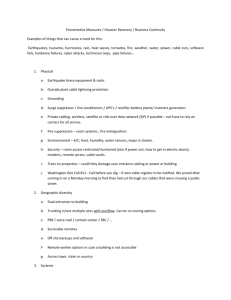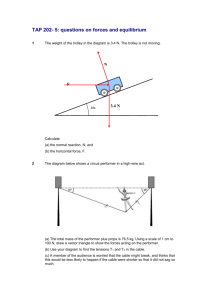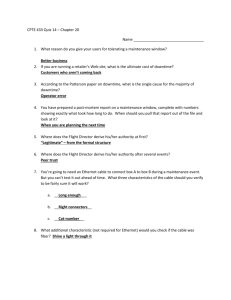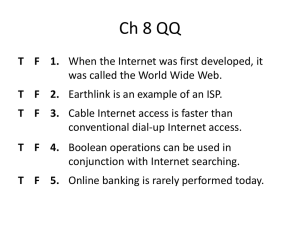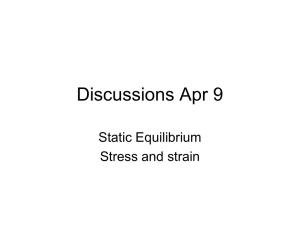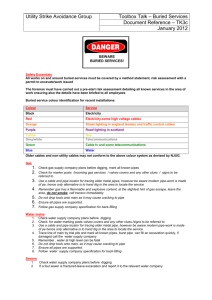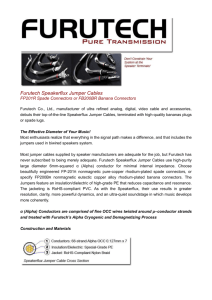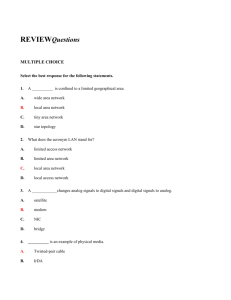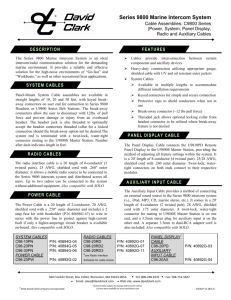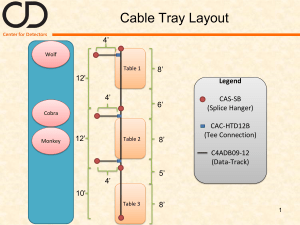English
advertisement
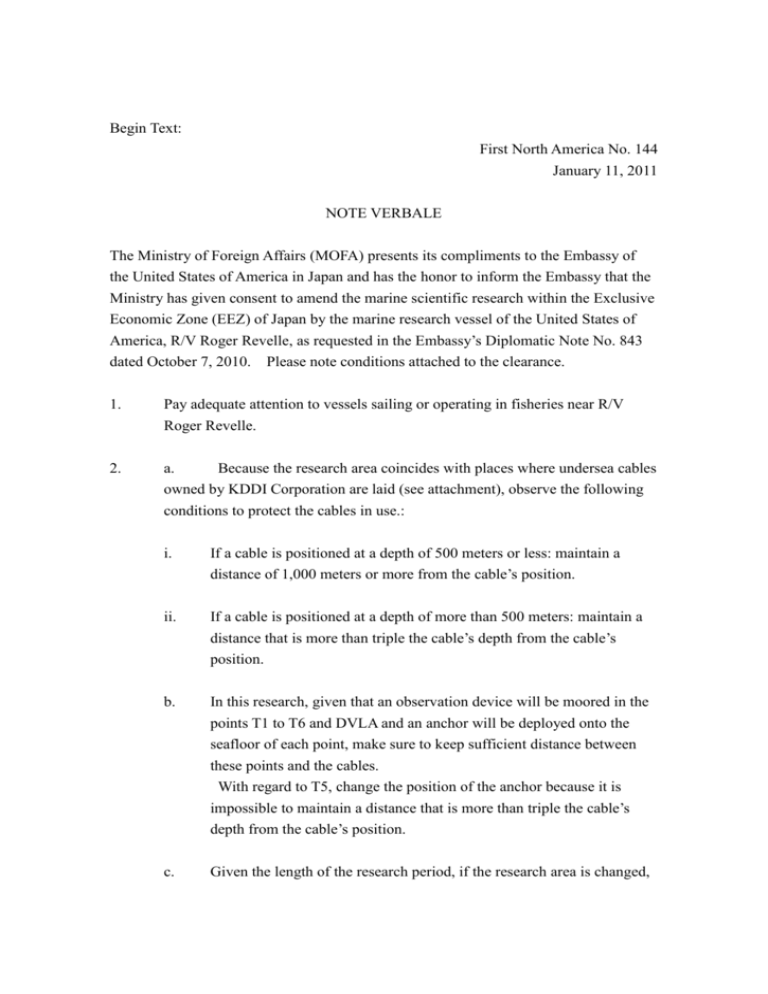
Begin Text: First North America No. 144 January 11, 2011 NOTE VERBALE The Ministry of Foreign Affairs (MOFA) presents its compliments to the Embassy of the United States of America in Japan and has the honor to inform the Embassy that the Ministry has given consent to amend the marine scientific research within the Exclusive Economic Zone (EEZ) of Japan by the marine research vessel of the United States of America, R/V Roger Revelle, as requested in the Embassy’s Diplomatic Note No. 843 dated October 7, 2010. Please note conditions attached to the clearance. 1. Pay adequate attention to vessels sailing or operating in fisheries near R/V Roger Revelle. 2. a. Because the research area coincides with places where undersea cables owned by KDDI Corporation are laid (see attachment), observe the following conditions to protect the cables in use.: i. If a cable is positioned at a depth of 500 meters or less: maintain a distance of 1,000 meters or more from the cable’s position. ii. If a cable is positioned at a depth of more than 500 meters: maintain a distance that is more than triple the cable’s depth from the cable’s position. b. In this research, given that an observation device will be moored in the points T1 to T6 and DVLA and an anchor will be deployed onto the seafloor of each point, make sure to keep sufficient distance between these points and the cables. With regard to T5, change the position of the anchor because it is impossible to maintain a distance that is more than triple the cable’s depth from the cable’s position. c. Given the length of the research period, if the research area is changed, provide the latest detailed information such as the observation system’s floating radius and plans to remove the system as necessary. This information would be needed to consider effects on repair or removal of the cable in use and future plans of laying cables. 3. Because the research area coincides with places where undersea cables (C2C Segment-5) owned by Pacnet Services Japan Corp. are laid, follow the guidelines of the International Cable Protection Committee (ICPC) and maintain a distance that is more than triple the cable’s depth from the cable’s position in case the vessel touches or disturbs the sea bottom, for the purpose of protecting the cables in use. 4. As an area coordinator of the NAVAREA and a Coastal State, Japan may issue sailing warnings published in the Notices to Mariners as necessary. To that end, make sure to notify the Notices to Mariners Office, Sailing Information Division, Hydrographic and Oceanographic Department of the Japan Coast Guard of the times and dates and longitudes and latitudes of research areas. Also notify the Notices to Mariners Office whether or not your vessel will tow any objects. If you will tow any objects, include the length of the tow line in your notification. Provide this information via fax (+81-3-3542-7174) or e-mail (tuho@jodc.go.jp) at least two weeks before starting the research. 5. Inform MOFA without delay if any observation device is lost. 6. Because the observation device could be recovered by the JCG or a third party, notify the Ministry if Land, Infrastructure, Transport and Tourism in advance as to who will recover them. If you are asked to recover a missing device, please ensure it is recovered. 7. Because MOFA needs to grasp the movement of the research vessel as information to make sure the research is conducted appropriately following the application submitted, make sure to notify the Operation Direction Center, Administration Division, Security Department of JCG of the following via fax (+81-3-3581-2853) during the research activities. a. The dates, times and places of entering and leaving Japan’s EEZ and subsequent plans of research by the vessel, and b. The position of the vessel once each day (for example, 1200JST) while the vessel is within Japan’s EEZ. 8. In conducting the research, pay the highest attention to ensure residents’ safety and do not disturb fishing boats, fishery operations and fishing grounds in the research area. 9. Recover all the observation devices without delay after the research is completed. 10. Provide MOFA with research data after the research is completed. End Text.
